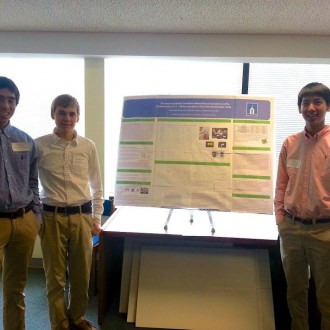Why aren’t lab researchers paid better?
To this date, I have asked myself this question over a hundred times, and still haven’t come up with a particularly satisfactory answer. My curiosity started in middle school when one of my teachers put into practical perspective my new ambition to become a chemist. It was my first lesson on risk and reward. The risks of pursuing a career as a chemist were plentiful and the reward was limited (in terms of both career and financial success).
But I didn’t let that sway me, and in high school, I continued to stay true to my beliefs. My closest friends and I worked in labs for nearly two years. We wrote several research papers, ran a student-led research magazine, and spent long nights in the lab working on our projects (which ranged from making new optical fiber cables to biodegradable nitrate filters).

Yet today it’s entirely different. Every single one of us has drifted away from the passion that bonded us. And, while it may be that our interests have evolved over time, we are all aware of the unspoken but overarching reason behind the change. We tend to blame the hours and the frustration involved in being a researcher; but in all honesty, we always loved working long hours on experiments that failed 90% of the time. We were mentally invested in our projects. It’s the financial stability of the profession that has cut our ties with the lab.
Even at Princeton, where there is an incredibly strong focus on undergraduate research, CBE and Chemistry majors frequently go into medicine, consulting, and finance after college. It’s the sad reality of living in a system where some of the most hard-working and intelligent people aren’t properly rewarded for their efforts. Several of us owe so much to the time we spent pipetting, measuring, and even just waiting around in the lab. Doing lab research in high school taught me a lot about patience, efficiency, and careful analysis. It gave me a second family in my classmates who undertook these research projects with me. It made me passionate about the more applied research I do today because I can appreciate the pure lab science and theoretical math that silently drives it.
A few weeks ago, I brought this up to one of my old classmates who had given up lab research for computer science – again for financial reasons. We decided that whatever career path we choose, we want to return to “our roots” one day, to help prevent compensation from conflicting with young researchers’ passions. Whether that’s through financially advising pharmaceutical companies, volunteering at high school science fairs, setting up internship programs for undergrads, or even starting our own labs one day – we pledged to give back. It’s the least we can do to help change the lab research system that gave us so much, but was unfortunately overshadowed by other career opportunities that pulled us away.
— Kavi Jain, Engineering Correspondent

